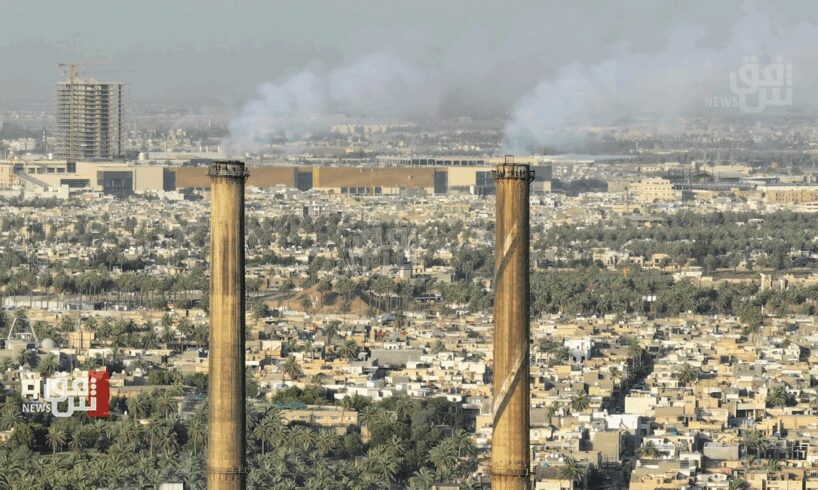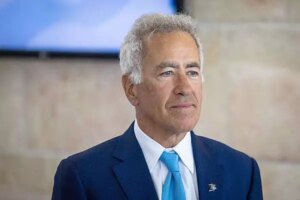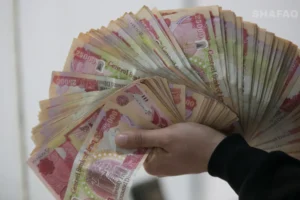
Shafaq News
Pollution is silently infiltrating Iraq—particularly the
capital, Baghdad—through noise, air, water, and soil, posing a daily threat to
millions. Despite longstanding environmental laws, contamination across the
country is escalating, with fines remaining largely symbolic and enforcement
insufficient to address the growing crisis.
From the Tigris River, which has become a repository for
industrial and medical waste, to Baghdad’s air, heavily burdened by vehicle
emissions and waste incineration, authorities confront an escalating
environmental emergency that jeopardizes public health, food security, and
biodiversity.
Compliance under Pressure
According to the United Nations Environment Programme
(UNEP), Iraq ranks among the most climate-vulnerable countries in the Middle
East, where environmental degradation compounds rising temperatures,
desertification, and diminishing river flows.
Together, these factors fuel a pollution crisis presenting
both immediate health risks and long-term strategic challenges.
“The principal challenge we encounter is the widespread
noncompliance with national environmental regulations across various government
entities and the private sector,” noted Salah al-Zeidi, head of the Awareness
Department at the Ministry of Environment, in remarks with Shafaq News.
He highlighted efforts to deploy advanced pollution
monitoring systems under government programs, including ambient air quality
stations financed by a Cabinet-approved allocation of two billion Iraqi dinars
(approximately $1.5 million) aimed at curbing air pollution.
“These adverse effects on public health are well documented
and require no further study,” al-Zeidi added, pointing to established links
between air pollution and respiratory diseases, while research continues into
potential associations between non-ionizing radiation from mobile phone towers
and cancer incidence.
The World Health Organization (WHO) consistently identifies
Iraq’s urban air quality as critically poor. In its latest global air pollution
rankings, Baghdad ranks among the most polluted cities in the region, with
particulate matter (PM2.5) concentrations frequently exceeding recommended
safety thresholds multiple times. However, Iraq currently lacks a
comprehensive, nationwide real-time air quality monitoring network, which
limits its ability to respond swiftly to environmental health emergencies.
In 2022, the Ministry of Health reported a 28% increase in
respiratory complaints in Baghdad during periods of elevated pollution,
illustrating the growing burden on public health systems. Meanwhile, numerous
industrial facilities and power plants operate without adequate emissions
controls or regulatory oversight.
Ecosystem Alarm Bells
Recent scientific assessments indicate a marked escalation
of pollution in Iraqi rivers, particularly in the Tigris, where levels of fecal
bacteria, oil, and medical waste pose serious environmental and public health
threats. While the Euphrates also shows contamination—especially downstream
where pollution intensifies—it remains comparatively less polluted than the
Tigris, according to environmental specialists.
A 2022 study, titled Bacteriological Assessment of Tigris
River Water in Baghdad, and published in the journal Water, found that the
Tigris River in Baghdad contains fecal coliform bacteria concentrations more
than three times above the US Environmental Protection Agency’s threshold for
safe domestic water supply. This study highlights the severe impact of
untreated sewage and industrial waste being discharged directly into the river,
placing millions of Iraqis at risk of waterborne diseases.
In addition, a 2025 study in Scientific Reports, titled
Water quality and hazard potential assessment of the Euphrates River in Iraq,
assessed the water quality of the Euphrates River using the Hazard Potential
Index (HPI) and found that contamination increases downstream, with certain
areas classified as “extremely polluted” (HPI values above 28, approaching
100). While the Euphrates shows serious localized degradation, the study noted
that pollution is more acute and consistent in the Tigris, especially around
urban centers.
The Ministry of Environment attributes much of the pollution
in both the Tigris and Euphrates rivers to untreated sewage discharges by
government institutions, urging the Ministry of Water Resources, Baghdad
Municipality, and provincial authorities to expand wastewater treatment
infrastructure.
“Ninety percent of Iraq’s rivers are contaminated,” asserted
environmental expert Murtadha al-Hassani in an interview with Shafaq News.
“Industrial facilities, refineries, power plants, and healthcare institutions
discharge waste directly into the Tigris, substantially elevating pollution
levels.”
He emphasized that pollution affects both air and water,
with industrial runoff also degrading soil and ecosystems. “This situation
threatens biodiversity and agricultural production, in addition to its direct
repercussions on public health,” al-Hassani explained.
The Ministry of Water Resources estimates that over five
million cubic meters of untreated wastewater flow daily into Iraqi rivers,
predominantly from urban and industrial zones. A 2023 World Bank report found
only 13% of urban wastewater undergoes treatment before entering waterways—far
below the regional average of 62%.
This shortfall accelerates water quality deterioration,
especially in agricultural regions reliant on river irrigation, it added.
Additionally, the University of Baghdad’s Department of
Environmental Engineering reported elevated concentrations of heavy metals such
as lead, mercury, and cadmium in river sediments downstream of major urban
centers. These persistent toxins accumulate within ecosystems, entering food
chains via agriculture and fisheries, posing significant long-term health
risks.
Falling Short
Baghdad Municipality has increased wastewater treatment
capacity.
“There are currently seven sewage treatment plants operating
in Nahrawan,” confirmed municipal spokesperson Uday al-Jandil to Shafaq News.
He also noted that additional filtration units are under development as part of
the Abu Uitha project, alongside major initiatives like the Shurta Canal
project.
With a daily capacity of 400,000 cubic meters, the Shurta
Canal project is scheduled to be managed by a specialized contractor and aims
to fully treat wastewater before release into the river through integrated
filtration systems.
Jandil reiterated the municipality’s commitment to resolving
sewage treatment challenges, including ongoing inspections of food
establishments and the installation of grease traps to reduce pollution from
commercial sources.
However, independent assessments reveal a persistent gap
between announced projects and measurable improvements in environmental
quality. According to UNEP, nearly half of Baghdad’s residents lack access to
formal sewage systems, relying instead on cesspools or informal drainage that
often leak, contaminating soil and shallow groundwater aquifers.
International donors, including the Japan International
Cooperation Agency (JICA), have proposed support for decentralized wastewater
solutions targeting underserved neighborhoods. Nonetheless, progress remains
hindered by institutional fragmentation and limited technical capacity.
Justice on Hold
Following Iraq’s political transition, several environmental
statutes have been enacted, including Law No. 27 of 2009 on sustainable
development and environmental protection, as well as the Clean Air Law No. 1 of
2010, which regulates emissions and mandates preventive measures.
Environmental legal expert and activist Adel al-Yasiri
remarked tour agency that protecting the environment is a responsibility shared
between legislative and executive authorities, urging the parliament to update
legislation and align with regional standards and evolving environmental
challenges.
“The executive branch must ensure environmental standards
are enforced in both public and private sector contracts,” al-Yasiri stressed.
He further criticized the limited presence of inspection teams and
environmental police units, noting that existing penalties—primarily fines and
short-term imprisonment—fail to deter violations effectively.
Since 2003, the Iraqi parliament has passed over fourteen
environmental regulations, yet enforcement remains weak. A 2021 audit by the
Federal Board of Supreme Audit found less than 20% of industrial facilities
undergo annual inspections, hindered by logistical challenges and political
interference.
Moreover, many provinces, particularly in southern Iraq,
lack specialized environmental courts and adequately trained prosecutors,
impeding the prosecution of violations.
Despite more than a decade of legislation, enforcement
remains fragmented, fines remain symbolic, and public institutions continue to
discharge untreated waste into the very rivers that sustain the country’s
agriculture and drinking water. This institutional gap is what transforms
pollution from a manageable problem into a chronic national threat.
Compared with its regional peers, Iraq lags significantly in
wastewater treatment and urban air quality management, leaving it among the
most environmentally stressed states in the Middle East. Without decisive
reforms—stronger regulatory enforcement, investment in modern infrastructure,
and accountability mechanisms—pollution will continue to erode public health,
agricultural productivity, and social stability.
Written and edited by Shafaq News staff.





